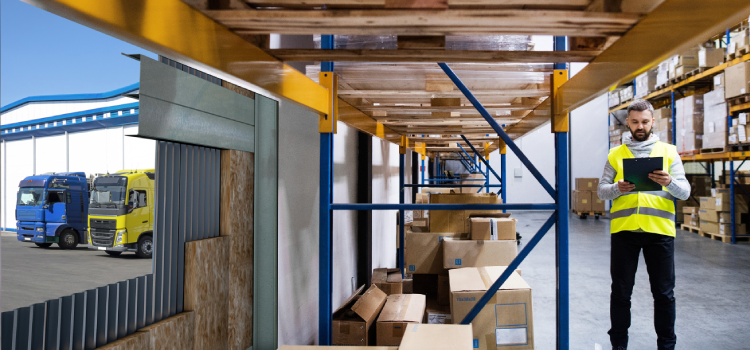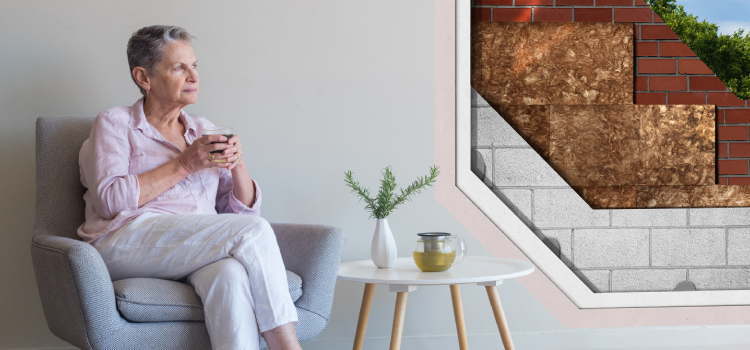Internal Walls
Acoustic performance is the principle requirement for internal walls, with both sound insulation and sound absorption being important considerations. The sound absorption characteristics of our mineral wool insulation solutions make them ideal for use in internal wall build-ups. Thermal performance in internal partitions is not usually relevant.
In certain buildings there may also be specific fire performance requirements for partitions separating specific room types making our non-combustible solutions an ideal choice for this application.
.png)
_0.png)
Separating Party Wall
Separating walls are walls between adjoining buildings eg. houses, and are also called “party” walls.
The thermal performance of a party wall can be maximised by completely filling the cavity in order to prevent the chimney effect that occurs in an uninsulated cavity.
The building designer should also consider the use of
cavity barriers at the edge of the party wall cavity. Insulated party walls using mineral wool significantly enhance acoustic performance, acting as a barrier
Built up metal walls
Our mineral wool insulation solutions for built-up metal walls provide very high levels of sound absorption, and can achieve outstanding levels of sound insulation when combined with the separation between internal and external metal sheets.
Built-up metal walls are most commonly installed on non-residential buildings such as offices, shops and warehouses providing very high levels of thermal insulation.

.png)
Framed External Walls
Metal or timber frame walls generally provide better levels of thermal insulation performance than masonry walls of comparable thickness. However, the reduced mass of the wall means that insulation materials need to provide a higher level of acoustic performance to compensate.
Mineral wool insulation is friction-fitted between metal or timber structural studs, with the option to install additional insulation to the internal face of the wall, and / or into the cavity to further enhance thermal performance.
External Masonry Cavity Walls
Full-filling masonry cavity walls with mineral wool enables the best possible R-value to save energy costs and reduce thermal gain.
This application will become increasingly important in South Africa with the new SANS 10400-XA standard and the impact of EPCs (Energy Performance Certificates).
Our full-fill built-in solution is installed as the walls are built and is suitable for all types of buildings as detailed in the British Board of Agrément (BBA) Certificates.

.png)
Ventilated Façade Systems
Ventilated façade systems are lightweight when compared to brick and masonry solutions and can provide the designer with a wide range of aesthetic options.
In addition to thermal performance, fire performance of insulation materials is a crucial consideration, particularly when designing high-rise buildings or when the buildings will have high occupancy levels or vulnerable occupants.
Rainscreen ventilated facade systems are suitable for a range of backgrounds and substrates including concrete and masonry walls in addition to steel frame constructions.
External Wall Insulation
Important issues when specifying an external wall insulation solution include the level of thermal performance to be achieved, which finish is the most suitable and the Reaction to Fire classification of the insulation.
EWI (External Wall Insulation) is used on an existing building where there is no cavity to insulate, significantly improving thermal performance and reducing energy bills.
EWI involves the installation of an insulating layer to the external fabric of an existing, or new building, and is usually finished with a render coat, brick slips or clad with timber boards or tiles.
.png)
![]()

